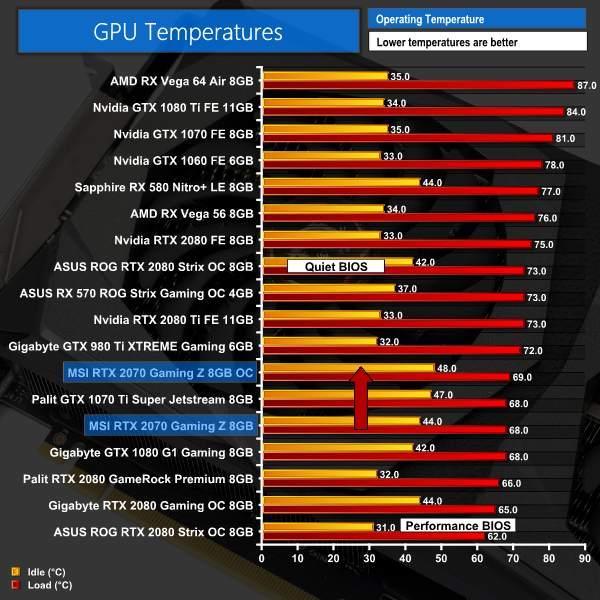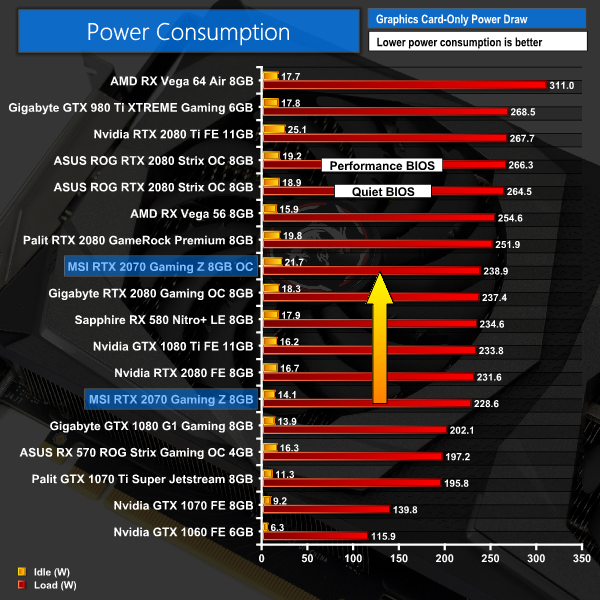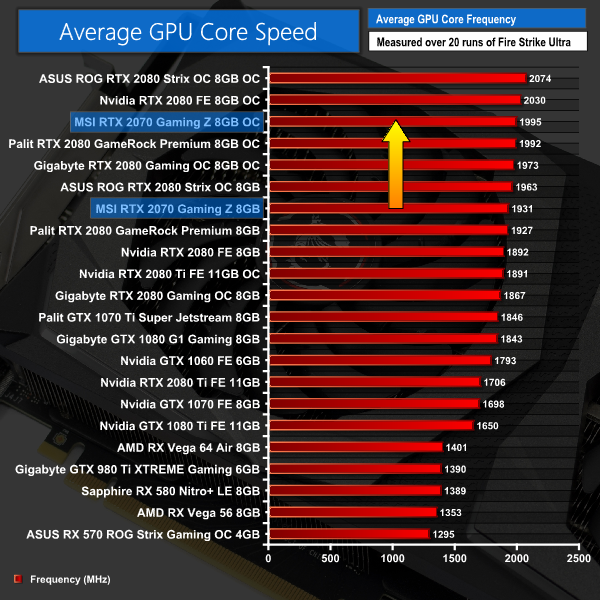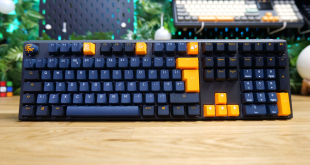Here, we take a further look at the impact of our overclock, looking at the increased temperatures, acoustics, power draw, and lastly, the effect had on the average clock speed.
Temperatures
Acoustics
Power consumption
Average clock speed under load
Overview
Looking at the thermals, it is impressive to see the Gaming Z only ran 1C hotter when overclocked – its noise levels barely rose as well, meaning there's very little reason not to run the overclock. Power consumption rose about 10W, which is again going to make very little difference in the real world.
In terms of the clock speed, we saw the Gaming Z run at 1995MHz when overclocked, so a total of 64MHz faster than its stock frequency. As we mentioned, it is not a huge leap as overclocking headroom is limited, but almost 2GHz on the core is impressive nonetheless. It will be interesting to see how other RTX 2070 solutions compare in the coming weeks and months.
 KitGuru KitGuru.net – Tech News | Hardware News | Hardware Reviews | IOS | Mobile | Gaming | Graphics Cards
KitGuru KitGuru.net – Tech News | Hardware News | Hardware Reviews | IOS | Mobile | Gaming | Graphics Cards






